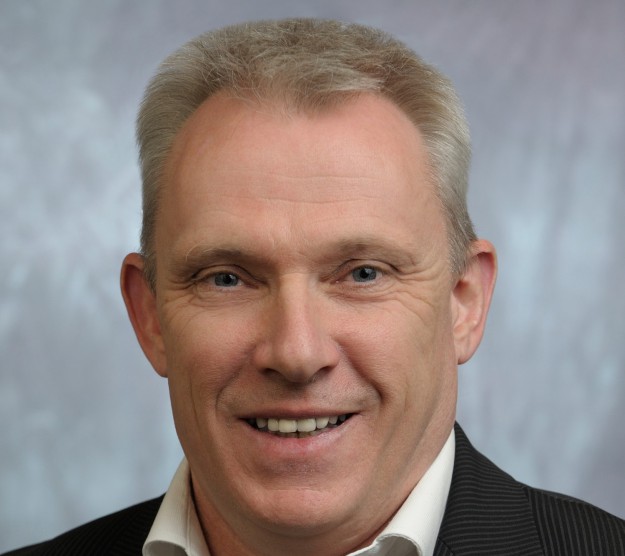At this time every year VanillaPlus talks to key figures in the industry about what we can expect over the next 12 months. Tell us what you think on Twitter or below.
We always watch out for comments from the team at Strand Consult in Denmark for one simple reason, they get more forecasts right than most. (Also see: Strand Consult predictions for 2015.) Here Jeremy Cowan reports on what they are saying about 2016.
Peace breaks out, no really
OTT vs Operators is dead: Partnerships will flourish, if not regulated out of existence
For many years there has been a struggle between Over the Top (OTT) players and telecom operators. But the two players need each other, and OTTs know it. Both sides will want to work together.
We expect that the number and type of services that operators bundle with voice, SMS and data will explode. Music services such as Spotify and Deezer; video services like HBO and Netflix; newspapers and magazines – any and all content that can bundled with traditional traffic packets that telecom companies sell will be bundled with mobile service for all devices.
Strong brands will play a role in partnerships. In the same way that toys, clothing and other consumer products enter partnerships with film companies, more brands and mobile service will come together. The challenge is to design business models that create win-win outcome.
Mobile payment is here – Visa and Mastercard are the killer apps
There are many who have a dream of success on the payment market. We predicted that mobile operators would never monetise this space, and we were right. Many mobile operators have withdrawn from the mobile payment market because they could not add value or make money. This also goes for the Internet players that attempt to enter the market.
The world of mobile payment belongs to the banks with Visa and Mastercard. 2016 will show that the value inherent in owning the account to which people get their salary – in combination with the retail banking/ATM network. Visa and Mastercard essentially own the consumer / merchant network, and only niche players can compete against their killer apps.
Prices will fall – roaming and competition
If you look at the mobile market, customers have primarily purchased voice, SMS and data which was often bundled with a subsidised phone. Over time the prices of basic products dropped, forcing the industry to cut costs and become more efficient.
There is a natural limit to how effective an industry can be. Cost cutting alone doesn’t deliver earnings. Operators need to think in new ways and create more differentiated products from the classic package of traffic and a telephone.
The EU’s roaming package was agreed in 2015. Thanks to Strand Consult’s exposure of the perverse SIM arbitrage opportunity the rules created, the appropriate fair use safeguard was put in place. We expect that mobile operators in many countries will focus on offering their customers access to superior roaming conditions with a special roaming package. For many operators, the sale of these packages could help shore up some of the revenue losses operators will suffer once free roaming takes effect.
The telecom industry’s biggest enemy is itself
One of the biggest challenges in the telecommunications world is that the operators in the telecom industry cannot get on the same page. Regulators use this to their advantage to exploit the divisions amongst different players. Trade associations should do a better job to communicate all the benefits that their members do for society, but they have not succeeded to craft the winning messages. As a result, politicians have used these rifts to create their own agenda which run counter to the goals of a health telecom market.
Two years ago we said that there was a need for GSMA to reinvent itself. This still hasn’t happened. GSMA makes so much money from the Mobile World Congress that it doesn’t need to worry about its key members any more. It has strayed from its core mission to focus on the needs of mobile operators to become a tent for any supplier in the mobile industry. A number of operators will likely move the regulatory work away from the GSMA to a new organisation, or take on more of the work themselves.
More focus on too few women in telecom
2016 will bring more focus to the few women in chief positions in the telecommunications industry. It is not a secret that the telecommunications industry is male-dominated, but the different reasons for this are not related to discrimination but rather that women have not considered telecom careers.
There has been an ongoing debate in Norway about the few women in chief positions at Telenor and about the need for more women in chief positions, and that debate will likely globalise. It’s a constructive debate that makes participants focus on what makes the management team effective. The best candidates who happen to be women do not want preferential treatment because of their gender. They want to be recognised for their accomplishments.
Mobile and the cloud

Next we turned to The Logic Group, specialists in payments, retail and the cloud. Andy Mellor, product manager, gives his expectations for mobile first and the post-wallet society.
“It’s something which has been mooted for some time but the age of ‘mobile first’ is definitely upon us; particularly as millenials become a highly valuable consumer demographic. Wallets have been around for some time but as the biggest kids in the playground enter the fray you can see this is a prime battleground. The proliferation of smart devices – not just phones – will also profoundly impact the way many transactions are made. This isn’t just in the form of contactless mobile payments but in-app purchases for digital and real world goods. Mobile won’t just be helpful to the shopping experience, it will become central. Merchants will have to look at how they build their digital and in-store experiences around mobile and payment is going to be at the heart of this.”
Nick Stacey, Logic Group’s director of business and market operations, describes the impact in 2016 of the cloud on in-store environments.
“Technologies like the cloud and mobile have largely been credited for the boom of eCommerce and the move away from the high street but they’re also set to change how we shop in-store too. With widespread connectivity and every one of us carrying what would have been considered a supercomputer just 10 years ago in our pockets, the way we interact in-store will evolve in a more fundamental way than ever before. There won’t be a need for tills or traditional Points of Sale as every phone can do that job. It won’t be a sudden revolution on shop floors up and down the country but we will start to see things evolve in such a way that we will see the green-shoots of a new way of shopping, and paying, in-store.”

Data, clouds and CSPs in security
Tom Griffin, managing director, EMEA at SevOne, a software systems provider that has been in the news regularly in 2015, (see: SevOne’s new release extends vision for deeper visibility into SDN and NFV environments) foresees several major trends in 2016:
The majority of new data generated will live on the cloud. Data gravity, where most data shifts to CSP and cloud data centres, will take place in earnest over the next year and we’ll see the balance tipping in favour of cloud.
Tier two cloud data centre providers will make a comeback. In response to strong demand for digital services from consumers and enterprises, tier two suppliers will see a surge in demand that will outpace the growth seen by hyperscale data centres run by those such as Google and Amazon.
Information from IoT devices will make up a third of all mobile traffic. IoT devices are six times more inefficient than an average tablet, and 2016 is the year when the market will finally start to move from hype to fulfilling its promise. This will pose issues for current signaling infrastructure, which could be overwhelmed.
CSPs will enter the cybersecurity market. Most global providers have security monitoring capabilities and with cybersecurity and data privacy increasingly becoming an issue for consumers, they will look to commercialise this as a service to customers.
APAC will emerge as a leading data centre location. A combination of explosive regional growth and global network/latency issues in Asian markets means virtually every organisation operating in Asia-Pacific will need to partner with local cloud providers. By 2016, 80% of the top Western cloud providers such as Google, Amazon and Microsoft will establish regional data centre partnerships with telcos.

Security in telecoms
Finally, given the growing importance of Security in all our lives (and VanillaPlus’ expanded coverage of the challenges for telecoms) we couldn’t finish without a word from Leo Taddeo, former Special Agent in Charge of the FBI’s NY Special/CyberOps division and the new CSO for Cryptzone.
In his list of the top four cybersecurity threats in 2016 he lists Data Aggregation – for Upstream Crimes. He says, “Criminal organisations will continue to target and correlate data on individuals from unrelated breaches to get a full picture of their identity that can then be used for upstream crimes such as filing false tax returns, applying for new credit, and broader wholesale identity theft.”
Taddeo concludes, “This data (such as social security numbers, addresses, etc.) resides everywhere, including healthcare organisations and financial services firms, but it is particularly concentrated in accounting firms and government databases. While the federal government will take steps to further secure their systems, look for an uptick in breaches of municipal databases in 2016.”
Comment below or via Twitter: @VanillaPlus OR @jcvplus







